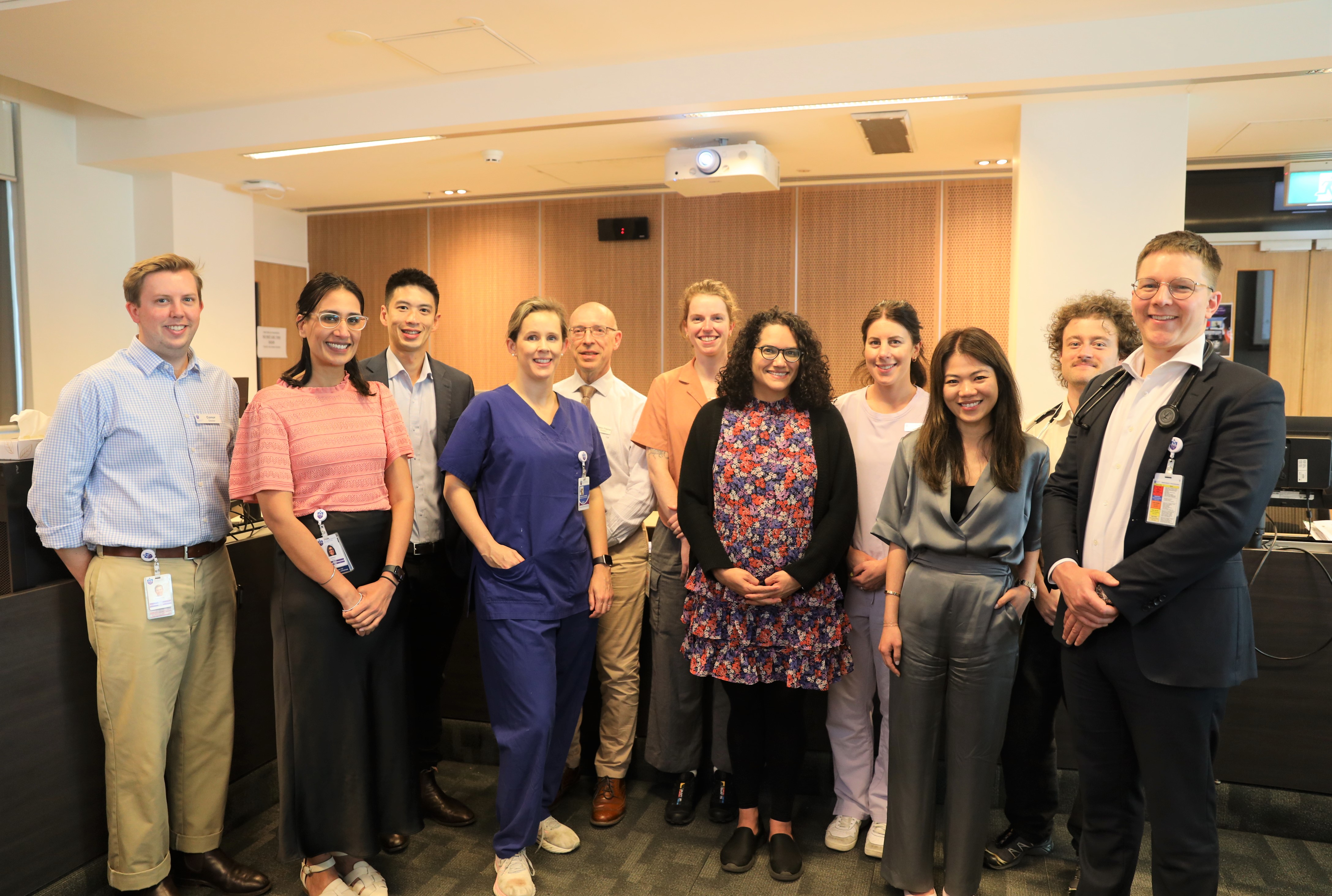.JPG)
Pictured: Dr Matthew Rees and Dr Elizabeth Paratz.
A multidisciplinary team of clinicians at St Vincent’s Hospital Melbourne (SVHM) have launched a specialised clinic for patients suffering from amyloidosis – a rare, life-threatening and complex disease.
Amyloidosis occurs when proteins misfold and accumulate as amyloid plaques in organs. It commonly affects the heart, kidneys, liver, spleen and nervous system, and early intervention is critical to give affected organs the chance to recover from the disease.
Only between 160-300 cases of amyloid-light chain (AL) and transthyretin (ATTR) amyloidosis - the most common types of the disease – are diagnosed annually in Australia.
Established in June 2024, the St Vincent’s clinic is a joint initiative between the hospital’s Haematology and Cardiology departments, with contributions from nephrology, neurology, pathology and gastroenterology.
Expanding patient care
The St Vincent’s clinic is improving access to novel treatments and coordinated care for amyloidosis patients, particularly benefitting those from rural areas who now have easier access to multi-specialist evaluations.
The clinic is also raising awareness among clinicians about the diagnosis and evaluation of the rare disease.
The team is led by specialists like Dr Matthew Rees, a haematologist who recently returned to St Vincent’s from a Fellowship specialising in amyloidosis at the Mayo Clinic; and Dr Elizabeth Paratz, a cardiologist who has led ground-breaking research into sudden cardiac arrest.
“For most physicians, amyloidosis is a mysterious condition that is spoken of in medical school but rarely encountered in the clinic,” said Dr Rees.
“By establishing this clinic, we hope to provide clinicians and patients with guidance in the evaluation and management of this rare disorder,” he said.
Dr Patatz added that the clinic also aims to minimise confusion for patients.
“For many patients, diagnosis of amyloidosis is delayed, and the condition and its many complications remain confusing,” Dr Paratz said.
“Here at St Vincent's our clinic offers a one-stop shop that unites specialties across the hospital to provide access to cutting-edge care on one site.'
Innovative therapies
Amyloidosis treatment differs depending on which misfolded protein is responsible for plaque build-up in organs, but the principle of treatment in all cases is the same - to stop further amyloid plaque from forming so the organ/s can recover.
The St Vincent’s clinic facilitates access to novel therapies for this purpose, many of which have recently become subsidised through listings on the Pharmaceutical Benefits Scheme (PBS):
-
Daratumumab, which targets plasma cells that produce amyloid and has improved survival and organ recovery.
-
Patisiran, an RNA interference drug for a hereditary type of amyloidosis.

Pictured: The multidisciplinary team from the St Vincent's amyloidosis clinic.
A collaborative vision
The comprehensive approach of the clinic draws on expertise from various specialties to tackle the systemic nature of amyloidosis effectively.
“Collaboration among different medical specialties is central to both the prompt diagnosis and effective management of amyloidosis,” Dr Rees said.
“Typically, symptoms are non-specific and occur gradually, with general practitioners and physicians being the first point of call for most patients.
“Considering amyloidosis as a differential is the first step in helping patients reach a diagnosis and effective therapy.”